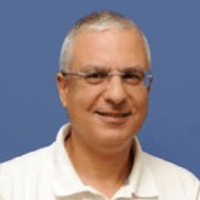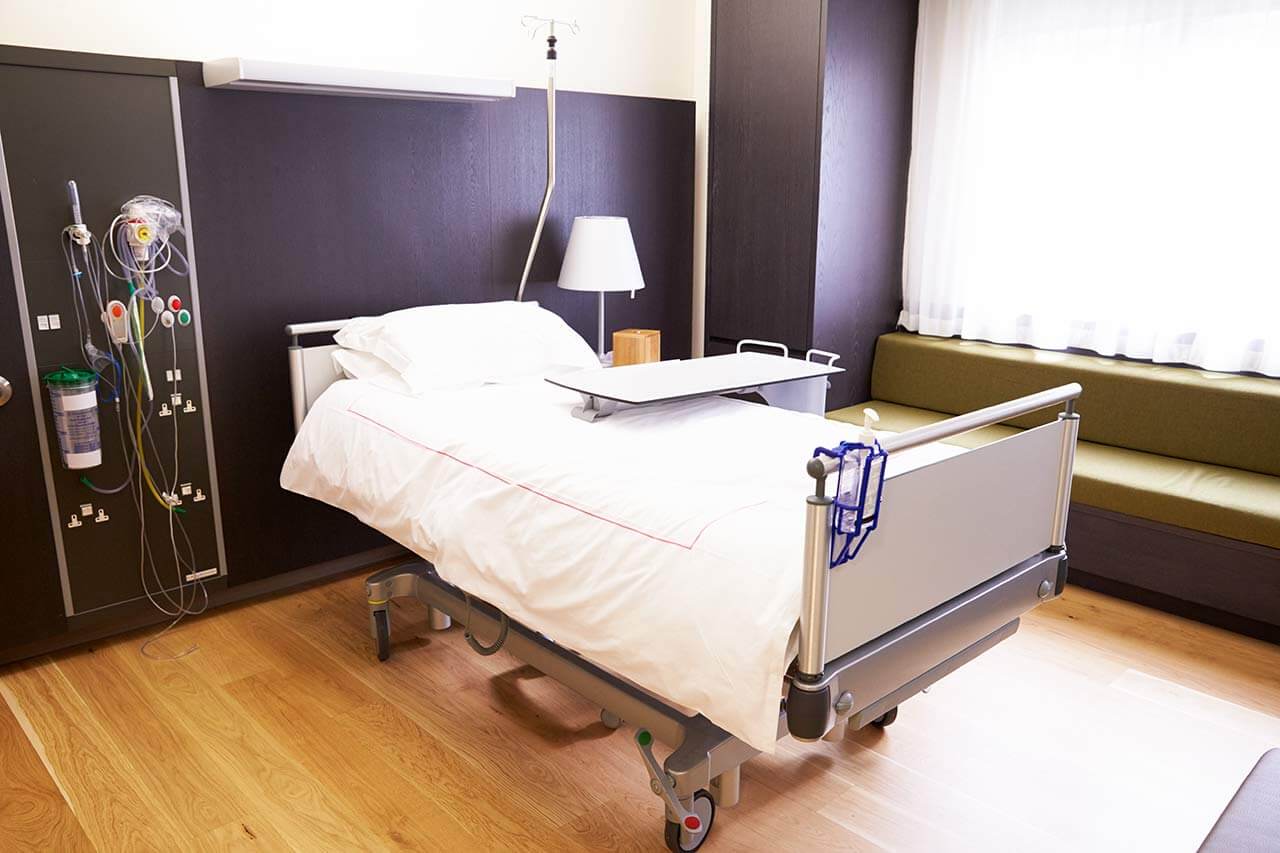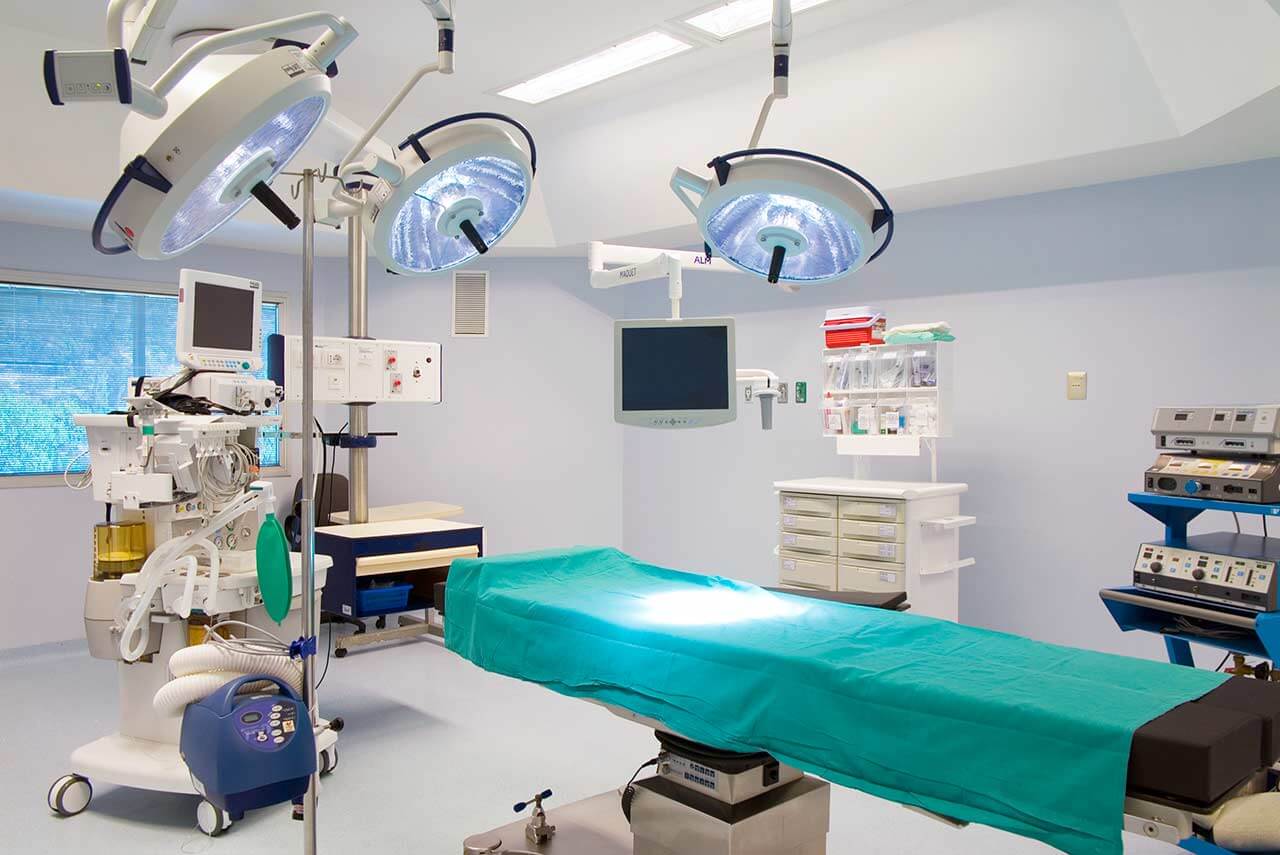
The program includes:
- Initial presentation in the clinic
- clinical history taking
- physical examination
- cardiological examination
- laboratory tests:
- complete blood count
- biochemical analysis of blood
- TSH-basal, fT3, fT4
- inflammation indicators
- indicators blood coagulation
- measurement of arterial blood pressure
- electrocardiogram
- holter monitoring (24h)
- echocardiography or transesophageal echocardiography
- preoperative care
- cardiac catheterization
- pulmonary valve balloon valvuloplasty
- symptomatic treatment
- control examinations
- cost of essential medicines and materials
- nursing services
- full hospital accommodation
- explanation of future recommendations
Required documents
- Medical records
- Echocardiography (if available)
Service
You may also book:
 BookingHealth Price from:
BookingHealth Price from:
About the department
The Department of Cardiology at the Tel Aviv Sourasky Medical Center offers all the options of modern medicine for the prevention, diagnostics and treatment of cardiovascular diseases. The competence includes the treatment of both critical conditions and chronic pathologies requiring continuous monitoring or rehabilitation. Thanks to the use of modern equipment and the provision of comprehensive, high-quality and personalized medical services, the department is recognized as one of the top Cardiology Centers in the national and international medical arena. The department is headed by Prof. Dr. med. Shmuel Banai.
The department provides round-the-clock emergency care for severe and life-threatening clinical conditions, such as acute coronary syndrome, myocardial infarction, congestive heart failure, severe arrhythmia, or other diseases requiring emergency care, monitoring, diagnostics, and treatment. The department's medical team also provides individualized treatment for patients with angina pectoris, heart failure, arrhythmias, etc.
The department has state-of-the-art Cardiac Catheterizations Laboratories, which serve for catheter-assisted interventions. These include, for example, dilatation procedures for the restoration of patency of blood vessels, implantation of heart valve stents and implants. The treatment of arrhythmias is one of the main activities of the department's specialists. It uses modern equipment for the diagnostics and treatment of this pathology, for example, catheters, pacemakers and defibrillators. The devices provide optimal treatment in case of atrial fibrillation, cardiac conduction defects, ventricular tachycardia and cardiac arrest.
The experienced cardiologists of the department offer highly accurate diagnostics, comprehensive monitoring and care for patients with heart valve diseases and structural heart diseases. To diagnose and treat such patients, the department widely uses cardiac CT, echocardiography, cardiac catheterization, ECG mapping of cardiac activity, etc. The patients who are contraindicated surgical treatment are offered catheter interventions, which are more easily tolerated and highly effective. In addition to high-quality treatment and diagnostics, the department provides rehabilitation, as well as consultations on primary and secondary prevention of cardiac diseases.
The service range of the department includes the following diagnostic and therapeutic options:
- Treatment of myocardial infarction
- Diagnostic coronarography
- Echocardiography
- Holter monitoring, electrocardiography (ECG) and ergometry
- Percutaneous aortic valve replacement
- Pacemaker implantation
- Defibrillator implantation
- Interventional procedures for structural heart diseases
- Coronary angioplasty
- Cardiac intensive care
- Cardiac catheterization
- Nuclear techniques in cardiology (for example, myocardial scintigraphy)
- Prevention of cardiological diseases
- Other diagnostic and treatment methods
Curriculum vitae
Education
- Medical School of the Hebrew University Hadassah, Jerusalem.
Continuing Education
- 1986 - 1988 Cardiology Fellowship, Department of Cardiology, Bikur-Cholim Hospital, Jerusalem, Israel.
- 1988 - 1991 National Institutes of Health, National Heart, Lung and Blood Institute, Department of Cardiology, Section of Experimental Physiology and Pharmacology, Bethesda, Maryland, USA (postdoctoral basic research in cardiology).
Clinical Experience
- Head of the Section of Interventional Cardiology, Department of Cardiology, Bikur-Cholim Hospital, Jerusalem.
- 1997 - 1998 Associate Director, Bikur-Cholim Hospital, Jerusalem.
- 1999 - 2004 Deputy Head, Department of Cardiology, Bikur-Cholim Hospital, Jerusalem.
- 2002 - 2005 Chief Medical Officer, Neovasc Inc.
- 2004 - 2005 Senior Cardiologist, Head of the Medical Unit, Heart Institute, University Hospital Hadassah, Jerusalem.
- 2005 - 2009 Medical Director, Neovasc Medical.
- Since 2009 Medical Director, Neovasc Inc.
- Since 2006 Head, Section of Interventional Cardiology, Department of Cardiology, Tel Aviv Sourasky Medical Center, Tel Aviv, Israel.
- Since 2019 Chief Physician of the Department of Cardiology, Tel Aviv Sourasky Medical Center, Tel Aviv, Israel.
Academic Experience
- 2002 Associate Professor of Medicine and Cardiology, Hebrew University, Jerusalem, Israel.
- 2007 Associate Professor of Cardiology, Sackler School of Medicine, Tel Aviv University, Tel Aviv, Israel.
- 2015 Full Professor of Cardiology, Tel Aviv University, Sackler School of Medicine, Tel Aviv, Israel.
- 2018 Head of the Elizabeth and Nicholas Slazak Super Center for Cardiac Research and Medical Engineering, Tel Aviv University.
Photo of the doctor: (c) Tel Aviv Sourasky Medical Center
About hospital
The Tel Aviv Sourasky Medical Center is the second largest and one of the most advanced healthcare and research facilities in Israel. It began its work in 1961, but it is still popular among the local population and attracts thousands of international patients.
The multidisciplinary medical center covers an area of 150,000 m². It has 60 departments and institutes with 1300 beds. The hospital annually provides its highly professional services to more than 1,5 million patients. In addition, the hospital enjoys prestige among doctors, many of whom want to have an internship and work here.
The medical center employs more than 6,400 people, among them more than 1,100 doctors, 1,760 nurses, 850 medical laboratory assistants, technical and other employees. The medical staff successfully combines clinical and research activities. The hospital annually conducts clinical trials aimed at the the development of new diagnostic and treatment methods.
Structurally, the medical facility is divided into four main hospitals. These include the General Hospital, the Rehabilitation Hospital, the Lis Maternity and Women's Hospital and the Dana-Dwek Children's Hospital.
The medical center is focused on individualized treatment. With adherence to the international standards of service, the specialists take into account the needs of each patient, his age and a specific clinical case. The medical center strives to provide treatment in a friendly and respectful atmosphere, with an empathic attitude to each patient.
Photo: (c) depositphotos
Accommodation in hospital
Patients rooms
The patients of the Tel Aviv Sourasky Medical Center live in comfortable rooms equipped with all necessary amenities. The standard room includes an automatically adjustable bed, a bedside table, a wardrobe for storing clothes. Also, each room has an ensuite bathroom with shower and toilet.
Meals and Menus
The medical center offers three meals a day: breakfast, lunch and dinner. For lunch, the patients have a choice of daily menus. If for some reason you do not eat all foods, you will be offered an individual menu. Please inform the medical staff about your food preferences prior to treatment.





